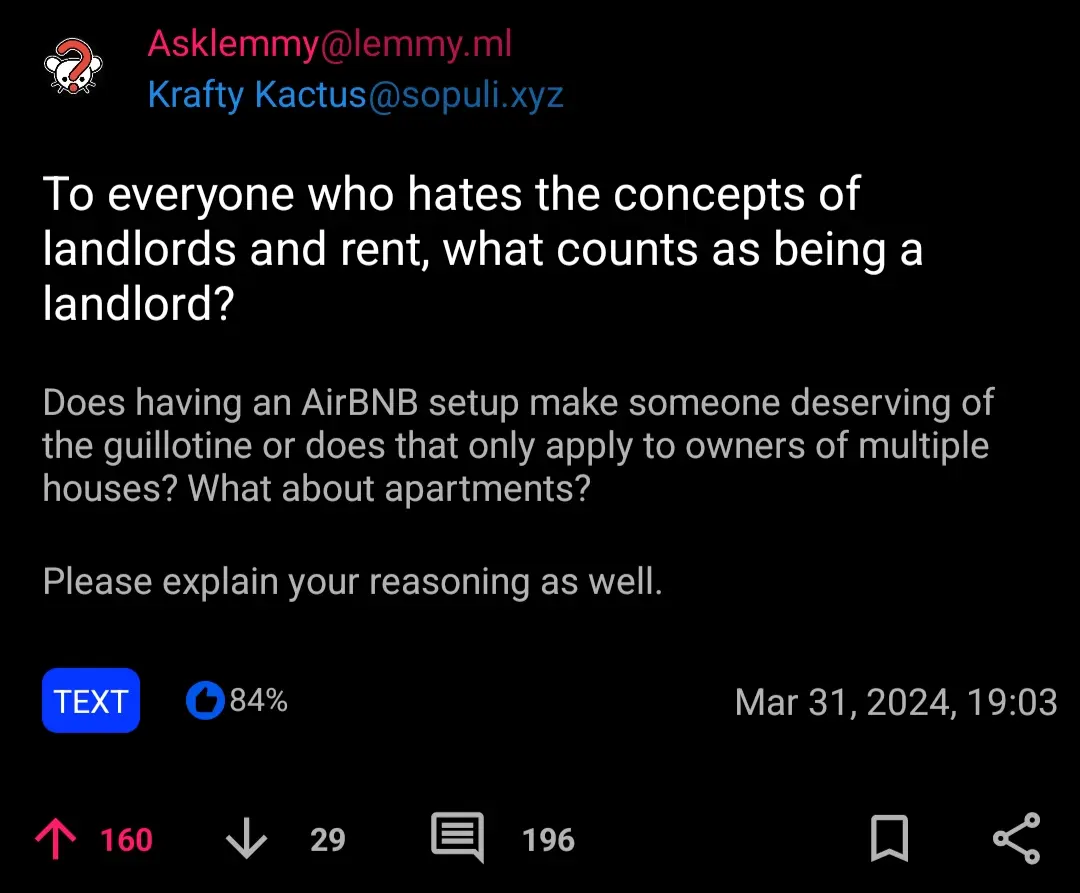this post was submitted on 02 Apr 2024
202 points (97.2% liked)
196
16848 readers
2202 users here now
Be sure to follow the rule before you head out.
Rule: You must post before you leave.
founded 2 years ago
MODERATORS
you are viewing a single comment's thread
view the rest of the comments
view the rest of the comments

Thanks for the links. I understand these concepts better now.
By that definition shareholders are rent seekers too. They extract way more value from the company than they add to it. Except instead of making money through leasing, it’s through dividend collection, capital gains and share buybacks.
As for loan givers, you could argue their existence provides value because it gives people access to funds they wouldn’t otherwise have had, allowing them to purchase goods they wouldn’t have been able to. However, when the whole system is set up such that going into debt is a requirement then the service offered by the loan giver doesn’t really add that much value to society.
In fact, if loans weren’t so tolerated, the market or government would have been forced, at an earlier point in time, to do something to reduce the costs of things we purchase with loans like real estate, cars and education (in places where it isn’t free/cheap).
Instead, loans artificially increase the cost of things to the point where buying them without getting a loan becomes impossible. For instance, by increasing the amortization period of mortgages from 10 years to 20 years to 30 years, the price of a home increased such that now it is completely out of reach to people looking to buy property without a loan.